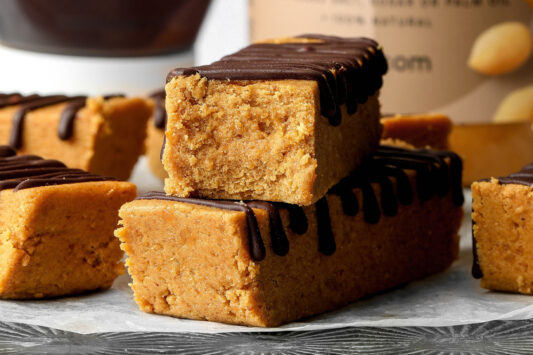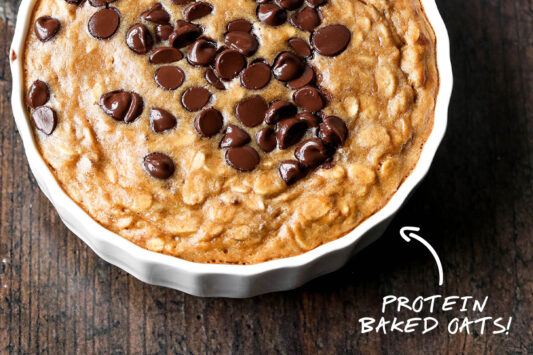Cold winter mornings and evenings can make it more difficult to stick to your training regime. When it’s cold and dark outside it’s much easier to choose to stay inside and not make it to the gym or go for a run. Especially when you consider that the winter months also bring with them a sharp rise in the number of people falling ill and the threat of you catching a bug. There are certainly a number of obstacles that threaten to interfere with your training.
Let’s take a look at what you can do in your training regime and with your nutrition to keep yourself on track and fighting fit during the winter.
Winter Training Tips
#1 Wrap Up Warm
This sounds simple and obvious, but it’s vitally important. With the temperature dropping, your body temperature will be a lot colder when you enter the gym than in the summer months. This means that your muscles will be cold and tight. Wrapping up in warm clothes including joggers and a thick hoodie is a great way to make sure you enter the gym feeling warm, relaxed and ready for your workout.
#2 Warm Up
Making sure you’re wearing warm clothes is a good start, but it’s still a good idea to make sure you warm up properly before you start lifting heavy if you’re weight training. Make sure you do at least 3 warm up sets focusing on good form to practice the muscle contraction and focus on that mind to muscle connection. .
Remember that a good warm up set gets you ready to lift heavy weight and should not fatigue you or compromise your working sets. You should be lifting at around 40% of your 1 rep max for 8 reps or so, to get the blood pumping and your muscles moving. Then when you start lifting a heavy weight you won’t be going in cold, which could increase your chances of injury.
#3 Routine
Dark mornings and dark nights make it much more difficult to find the motivation to exercise compared to the summer months. It’s essential that you work hard to maintain a routine. Decide on a workout plan, so you know what you’re doing each week and you know what you’re aiming to achieve.
Record your progress and set yourself goals. You may not have a beach holiday to prepare for, but that doesn’t mean you can’t still strive for something, whether that be to increase the weight your lifting or to target a specific body part to improve. If you have a clear aim for working out then it will be much easier to find motivation to achieve it.
Winter Nutrition Tips
#1 Vitamins & Minerals
Winter always seems to be the time of year where everyone is falling ill around you and it may feel like it’s only a matter of time before you too become ill. Illness is one of the most disruptive factors that can interfere with you sticking to your training regime. So how can you alter your nutrition to try and give your body the best possible change of fighting off unwanted germs?
A good start is to make sure that your diet is rich in fruits and vegetables, which are high in vitamins and minerals.
Vitamin D is especially important during the dark winter months, as this is a vitamin your body normally gets from the sun. It’s incredibly important for your immune system, so a vitamin D deficiency can reduce your body’s ability to fight infections. Foods high in vitamin D include oily fish like salmon and mackerel. These foods are also very high in protein, which is important for muscle growth and repair.
It may be a good idea during the winter months to take Complete Multivitamin Complex™ everyday, which contains an array of over 30 vitamins and minerals, including Vitamin C, Magnesium and Calcium.
#2 Stay Hydrated
When it’s cold you’ll probably drink less water, without even realising it. It might not seem as important when it isn’t hot and sunny outside, but it’s still essential for your health and well-being to be drinking at least 2 litres of water a day. Water helps normal bodily function, which will help your immune response, but it’s also very important if you’re training, as you will lose water in sweat. Make it a habit to have a water bottle with you at all times if possible, to make sure you’re constantly drinking water throughout the day.
#3 Your Macros Are Still Important
During the winter months it’s very easy to go a little off track with your nutrition and that’s okay. It’s good to have a balance and reward yourself, but try not to completely neglect paying attention to your macros. It can be very easy to turn to foods that are not so healthy, but try to maintain a healthy consistency in your diet.
To do this, it might be a good idea to track your macros to make sure you’re eating enough of the right nutrients.
Winter Warming Foods
Luckily when it comes to nutrition, BULK POWDERS® have a number of winter warmers that can help you stay on track with your diet, as well as offering comfort on those cold winter nights and mornings. Here are a few you could try:
- Complete Protein Porridge™ – with 22g of protein per serving and 35g of low GI carbohydrates, which makes this product a great way to start the day with a slow releasing energy source that fills you up.
- Protein Mug Meals™ – sometimes you will need convenience and this is exactly what mug meals gives you. Each sachet contains 21g of high quality pea protein, making this ideal for vegetarians as well.
Maintaining Your Motivation
The hardest thing for many in the winter months is finding the motivation to continue working out. It certainly seems that summer is a long way away, so what are you training for? You need to find an answer to this question, as this is what will motivate you to train and keep progressing. You might as well make the most of a quiet gym before the New Year swarm!
About the Author
Alex Genzel is passionate about health and fitness having been involved in a number of competitive sports from an early age. He has been writing about sports nutrition and training for a number of years, alongside pursuing his passion for bodybuilding and desire to become a certified personal trainer. As well as writing for BULK POWDERS® Alex also has his own blog where he shares his training experiences and advice on supplements.
















